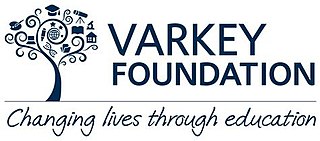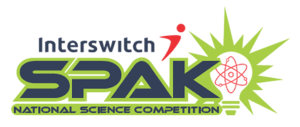Pillars of the Initiative
Mondialogo School Contest
The Mondialogo School Contest is the world's largest international contest for pupils between the ages of 14 and 18. All registered school teams are given a partner team previously unknown to them from a different region of the world. The teams establish contact, get to know each other and then develop a mutual project that should deal with topics such as peace, fair play, preventing discrimination, a sustainable future, identity, respectfulness toward cultural diversity or emigration/immigration.
At the end of a 6-month work phase the results of the teams are judged by an international jury. The top 25 entries are chosen and the teams get invited to a symposium lasting several days. This is an opportunity for pupils and teachers from all over the world to meet and get to know each other in person.
Two rounds of the Mondialogo School Contest have already been completed: 25,000 pupils from 126 countries took part in the 2003/2004 contest. The awards were given out in 2004 in Barcelona. The second contest saw the participation of 35,000 pupils (in 2,600 teams) from 138 countries. The symposium took place in Rome in 2006. The third round is finished and the symposium took place in Beijing in 2008.
Mondialogo Engineering Award
The Mondialogo Engineering Award calls for engineering students from developed and developing countries to form international project team and enter project proposals addressing the United Nations Millennium Development Goals – proposals that are capable of advancing the quality of life in the developing countries.
The first two rounds had 3,600 young engineers from 113 countries in 1,500 project teams participating in the Mondialogo Engineering Award. After a six-month project work phase the teams entered project proposals that are judged by an international jury of experts. The top 30 entrees are awarded prizes given out during a symposium lasting several days. The symposia took place in Berlin and Mumbai, respectively. The awards are endowed with a prize money of altogether €300,000, intended to help get the project proposals realised.
Mondialogo Internet Portal
The Mondialogo Internet Portal is the initiative's communications and information platform. In five languages, it offers a global online-community of over 26,000 members from 174 countries many features that allow them to communicate, interact, and network.
Teams participating in the Mondialogo School Contest and the Mondialogo Engineering Award here have virtual project offices that allow them to jointly work on their projects.
Details about the contests, news surrounding intercultural dialogue, and the Mondialogo Magazine are also provided on the portal, as well as all the latest about current developments and former projects, which can be found in the Inside Mondialogo Blog, written by members of the team and former participants.

Cultural diversity is the quality of diverse or different cultures, as opposed to monoculture, the global monoculture, or a homogenization of cultures, akin to cultural evolution. The term "cultural diversity" can also refer to having different cultures respect each other's differences. It is often used to mention the variety of human societies or cultures in a specific region, or in the world as a whole. It refers to the inclusion of different cultural perspectives in an organization or society.

The World Book Capital (WBC) is an initiative of UNESCO which recognises cities for promoting books and fostering reading for a year starting on April 23, World Book and Copyright Day. Cities designated as UNESCO World Book Capital carry out activities with the aim of encouraging a culture of reading in all ages and sharing UNESCO’s values. The nomination does not provide a financial prize.

Ekmeleddin Mehmet İhsanoğlu is a Turkish academic, diplomat and politician who was Secretary-General of the Organisation of Islamic Cooperation (OIC) from 2004 to 2014. He is also an author and editor of academic journals and advocate of intercultural dialogue.

Federico Mayor Zaragoza is a scientist, scholar, politician, diplomat, and poet from Spain. He served as the Director-General of the United Nations Educational, Scientific, and Cultural Organization (UNESCO) from 1987 to 1999. After his tenure as Director-General, he continued to participate in various peace-related organizations such as the Foundation for a Culture of Peace and the International Decade for the Promotion of a Culture of Peace and Non-Violence for the Children of the World, as a member of their honorary boards. Additionally, he serves as the honorary chairman of the Académie de la Paix.

The United Nations Alliance of Civilizations (UNAOC) is an initiative that attempts to "galvanize international action against extremism" through the forging of international, intercultural and interreligious dialogue and cooperation. The Alliance places a particular emphasis on defusing tensions between the Western and Islamic worlds.

Room to Read is a global non-profit organization headquartered in San Francisco, California. The organization focuses on working in collaboration with local communities, partner organizations and governments to improve literacy and gender equality in education.

Yōhei Sasakawa is chairman of The Nippon Foundation, the World Health Organization Goodwill Ambassador for Leprosy Elimination, and Japan's Ambassador for the Human Rights of People Affected by leprosy. His global fight against leprosy and its accompanying stigma and social discrimination is an issue to which he has remained highly committed for more than 40 years. As chairman of The Nippon Foundation, Japan's largest charitable foundation, he guides public-interest activities in modern Japan. Sasakawa received his degree from Meiji University’s School of Political Science and Economics. Sasakawa's father was businessman, politician, and philanthropist Ryōichi Sasakawa.
The Global Experience(formerly Solar Net International) is an international non-governmental organization that is involved with projects of global learning and Education for Sustainable Development.

The World Innovation Summit for Education (WISE) is an international initiative aimed at transforming education through innovation. WISE was established by Qatar Foundation in 2009 under the patronage of its chairperson, Sheikha Mozah bint Nasser. With a biennial Summit held in Doha, and a range of year-round initiatives, WISE's mission revolves around promoting new approaches to education and investigating new ways to address pressing global education challenges.
The St. Gallen Symposium, formerly known as the International Management Symposium and the ISC-Symposium, is an annual conference taking place in May at the University of St. Gallen in St. Gallen, Switzerland. It hosts intergenerational debates on economic, political, and social developments between decision makers.

The Khalili Foundation is a UK-based charity promoting interfaith and intercultural understanding through art, culture and education. Its founder and chairman is the London-based philanthropist, art collector and scholar Sir David Khalili. A Persian Jew who grew up in Iran, he is notable for having the world's largest private collection of Islamic art. Established in 1995, the foundation has created interfaith and intercultural links through "cultural, academic, sporting and educational programmes".
Science for Society is a technology-based social enterprise that started in 2008 as an informal group of students from different backgrounds including engineering, medical, business and science. Science for Society was registered as an NGO in 2010; Vaibhav Tidke was the founder.

The International Year of Light and Light-based Technologies 2015 or International Year of Light 2015 was a United Nations observance that aimed to raise awareness of the achievements of light science and its applications, and its importance to humankind. Under the leadership of UNESCO, the IYL 2015 brought together hundreds of national and international partners to organize more than 13,000 activities in 147 countries. The audience reached by the IYL 2015 is estimated to be over 100 million.

Reliance Foundation is an Indian non-profit organisation which was founded in 2010 by Mukesh Ambani. It is wholly owned by Reliance Industries Limited and is one of the largest non-profit foundations in the country.
Global citizenship education (GCED) is a form of civic learning that involves students' active participation in projects that address global issues of a social, political, economic, or environmental nature. The two main elements of GCE are 'global consciousness'; the moral or ethical aspect of global issues, and 'global competencies', or skills meant to enable learners to participate in changing and developing the world. The promotion of GCE was a response by governments and NGOs to the emergence of supranational institution, regional economic blocs, and the development of information and communications technologies. These have all resulted in the emergence of a more globally oriented and collaborative approach to education. GCE addresses themes such as peace and human rights, intercultural understanding, citizenship education, respect for diversity and tolerance, and inclusiveness.

The Varkey Foundation, initially the Varkey GEMS Foundation, is a global charitable foundation focused on improving the standards of education for underprivileged children. It was formed in 2010 by Indian businessman Sunny Varkey, the founder and chairman of GEMS Education, the world's largest operator of private kindergarten-to-grade-12 schools. The foundation's main focuses are improving global teacher capacity by training tens of thousands of teachers and principals in developing countries; providing access to education via a variety of programmes and projects; and advocating for change in, and conducting research that can help develop, education policies worldwide.
Educational technology in sub-Saharan Africa refers to the promotion, development and use of information and communication technologies (ICT), m-learning, media, and other technological tools to improve aspects of education in sub-Saharan Africa. Since the 1960s, various information and communication technologies have aroused strong interest in sub-Saharan Africa as a way of increasing access to education, and enhancing its quality and fairness.
The World forum on Intercultural dialogue is an international forum held in the Republic of Azerbaijan since 2011 to establish an effective and efficient dialogue between cultures and civilizations. Based on the Baku process and related declaration in 2008.

InterswitchSPAK National Science Competition is a High School Science Television contest show that started in Nigeria. It debuted in 2017 as SPAK.

Luboŭ Uładykoŭskaja is a cultural anthropologist and a Belarusian public figure. A founder and director general of the institution Intercultural Dialogue. A Fulbright Scholar













